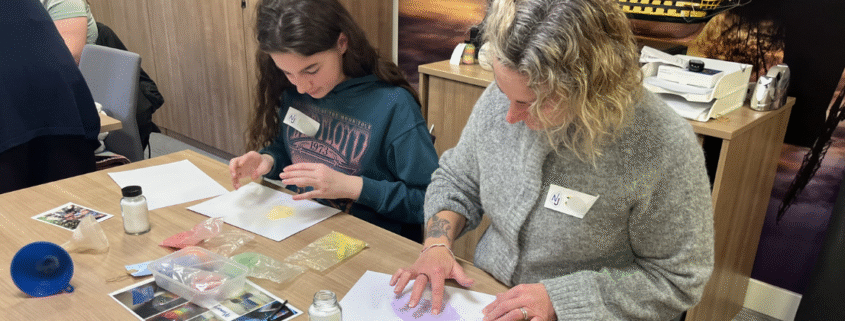Grief Connections October 2025
Grief Connections
Last week, we held a Grief Connections Day, with 10 families attending.
Grief Connections is facilitated by our specialist Child Bereavement Support Workers and supported by trained Nelson’s Journey volunteers. This is a new service which has been developed over the last year.
This service was introduced as we know that group work offers such a positive impact to the children and young people we support. The purpose of the day is to support children and young people in families where the bereavement is having a significant impact upon the parents & carers as well as the young people. It is a day of therapeutic bereavement activities for young people and their parents and carers.
The day started with an introduction to the theories of grief; to promote understanding and help families understand what healthy grief looks like.
The group then split to allow the adults and the young people to explore and discuss what their grief looks like. The adults in their group discussed their grief and how the bereavement is affecting themselves and their children. We talked them through the upstairs/downstairs brain, so that they will understand how their children respond when feeling upset or distressed.
After lunch we explored ways to look after yourself.
The young people shared their stories with the group and then the Child Bereavement Support Workers led them through ways to look after themselves and safely express their grief. The parents and carers also discussed their coping strategies. They were encouraged to think of healthy ways to look after themselves. The families then came back together and created memory jars.
We ended the day with our wishing tree ceremony. Both adults and young people created wishing tree discs to hang on the tree – on one side was a message to the person they came to remember and on the other is a wish for their future.
The day went really well and one of our Child Bereavement Support Workers said “All families who attended made meaningful connections with each other, learning new ways to support themselves and each other.”
The day was kindly funded by The Zohar Dean Trust




